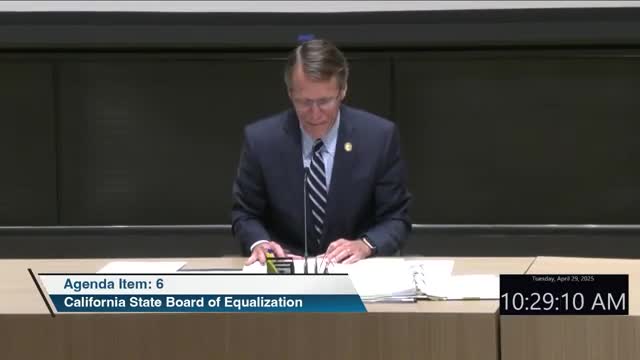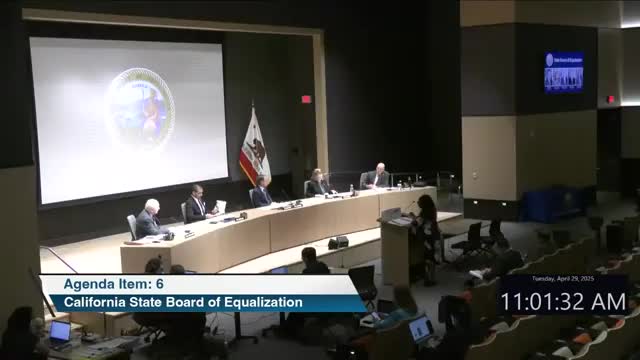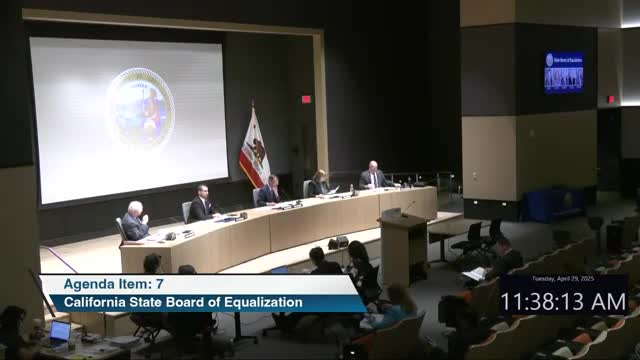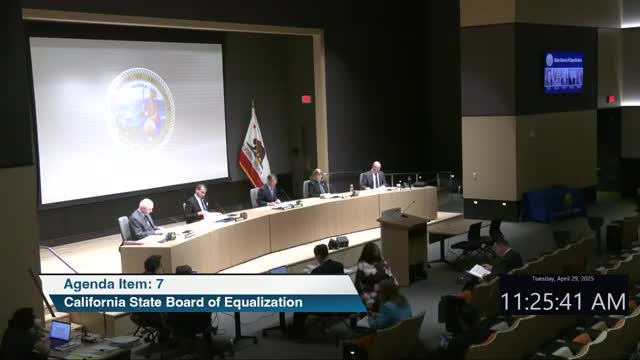Article not found
This article is no longer available. But don't worry—we've gathered other articles that discuss the same topic.

Board of Equalization adopts rules requiring memo for bill support, drops per-member bill limit

Board of Equalization releases FY 2023'24 annual report showing $8.7 trillion net assessed value and $95 billion local property tax revenue

Board backs Archuleta bills allowing homeowners to claim both homeowner and veterans exemptions

